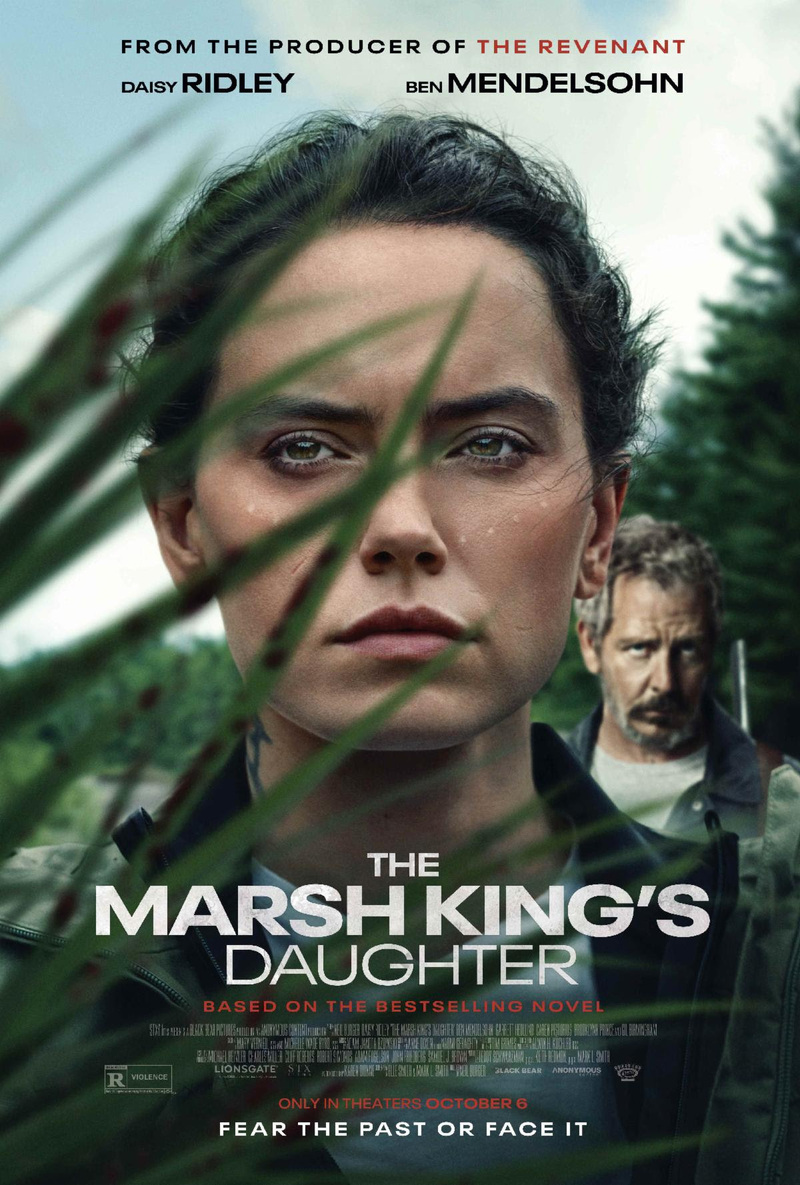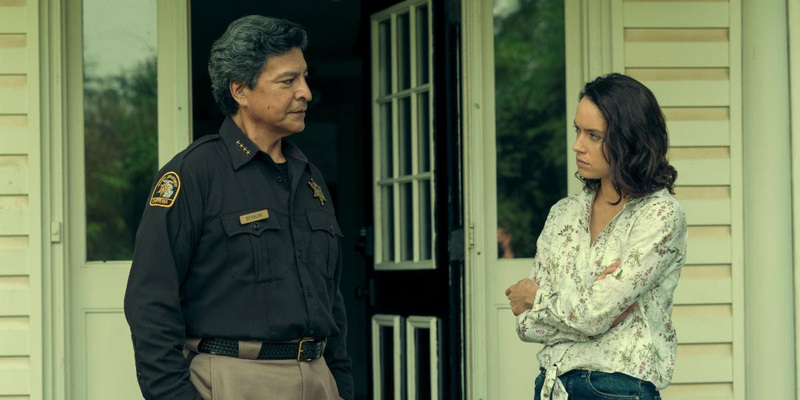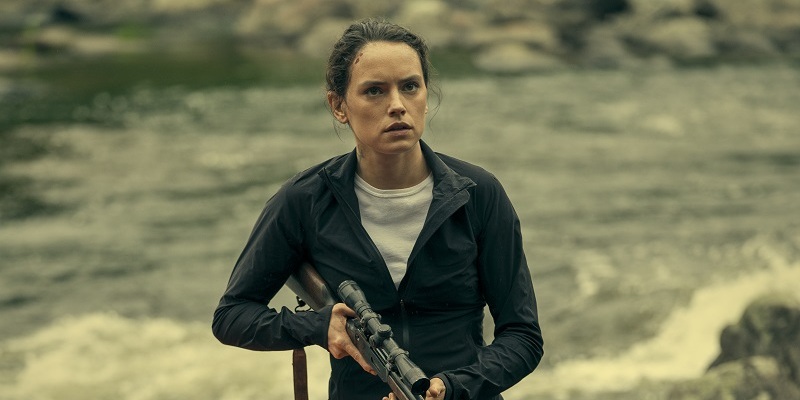
Review by
Eric Hillis
Directed by: Neil Burger
Starring: Daisy Ridley, Ben Mendelsohn, Garrett Hedlund, Caren Pistorius, Brooklynn Prince, Gil Birmingham

Forging a post Star Wars career has famously proven difficult
for many actors. While his role in the franchise propelled Harrison Ford to
megastardom, Mark Hamill, Carrie Fisher and Billie Dee Williams didn't fare
so well. Adam Driver now has his pick of Hollywood projects. John Boyega and
Daisy Ridley, not so much. There are at least signs that Ridley is
willing to embrace lower budget fare that offers her the chance to display
her under-rated acting chops. She's excellent as a depressed office drone in
the blackly comic
Sometimes I Think About Dying, and despite being lumbered with superficial material, she's compelling in
this adaptation of Karen Dionne's novel.
We first encounter Ridley's character, Helena, as a 10-year-old played by
Brooklyn Prince. Helena lives in a cabin deep in the Michigan woods
with her father Jacob (Ben Mendelsohn, whose age-reducing makeup
gives him the appearance of an estranged Hemsworth brother) and mother Beth
(Caren Pistorius, an actress whose doe-eyed features make her ideal
casting for a young version of Ridley's mother). Beth is cold and distant
towards Helena but Jacob takes the child under his wing, teaching her how to
survive in the woods by hunting the local fauna. His kill or be killed
philosophy may raise red flags for the viewer, but for Helena he's the man
she idolises.

Helena's world is torn apart when it's revealed that Jacob abducted Beth
and fathered their daughter against her will. Jacob told Helena that one of
the many tattoos he gave her symbolised family, but a Native-American
sheriff, Clark (Gil Birmingham), tells her it actually means "owned,"
as though Jacob had branded his daughter. A tearful Helena is wrenched from
the arms of her father, who is imprisoned for the abduction of Beth, along
with the murder of a hapless motorcyclist who stumbled upon their
cabin.
Two decades later Helena is happily married to the affable Stephen (Garrett Hedlund), with whom she has a young daughter, Marigold (Joey Carson).
Helena has never told Stephen the truth about her father, but her facade is
exposed when he breaks out of jail and the police descend on her home.
Jacob's charred body is soon found in a burnt out car, identified by his
distinctive gold teeth, but Helena is convinced he can still somehow get to
her.

Movies like this and the recent
Where the Crawdads Sing, in which young women raised in the wild are forced to return to their
primitive ways to survive when threatened by abusive men, are really just
polite society updates of the sort of swamp set exploitation movies low
budget filmmakers cranked out in the 1970s. Instead of Playboy playmates we
now get acclaimed English actresses in the lead roles, and the heroines of
today's versions of such movies don't murder half as many out of shape
rednecks. The '70s versions may have featured a lot more female flesh, but
they were arguably more feminist in nature as their heroines never had any
male figures they could rely on, unlike the sensitive nice guys we find in
these modern updates.
The Marsh King's Daughter's main problem is that it can't accept how closely it skews to the basic
appeal of an old-fashioned exploitation pic. It sets up a climactic
confrontation between Helena and Jacob, but it never does enough to stir up
a primal bloodlust in the viewer. There are parts where it threatens to
become a far more nuanced movie about a woman who still loves her father
despite knowing he's a monster, but the movie quickly moves on from such
moments as it edges towards a final act that we know will see father and
daughter pitted against each other in the very woods where they once played
out a familial charade.

Considering how invested the movie is in getting us to that point, the
final confrontation comes too late for the movie to do anything interesting
with it. Given how the film isn't particularly interested in exploring
Helena and Jacob's relationship, it really needs to get to the action a lot
earlier. Competent journeyman director Neil Burger struggles to mine
tension from his staging of the cat and mouse action, and much of the impact
is reduced by Helena being revealed as an equal adversary of her father (the
curse of modern Hollywood's obsession with making women protagonists
"strong" in the action hero sense, rather than strong willed like the best
heroines of the past), who is thus never as threatening as this sort of
character should be.
There are scattered scenes that allow Ridley to show that she deserves to
remain in the post Star Wars spotlight, particularly a
monologue in which Helena imagines being truthful with Stephen on their
first date. But once The Marsh King's Daughter transitions
from character study to survival thriller it gets lost in the woods.


